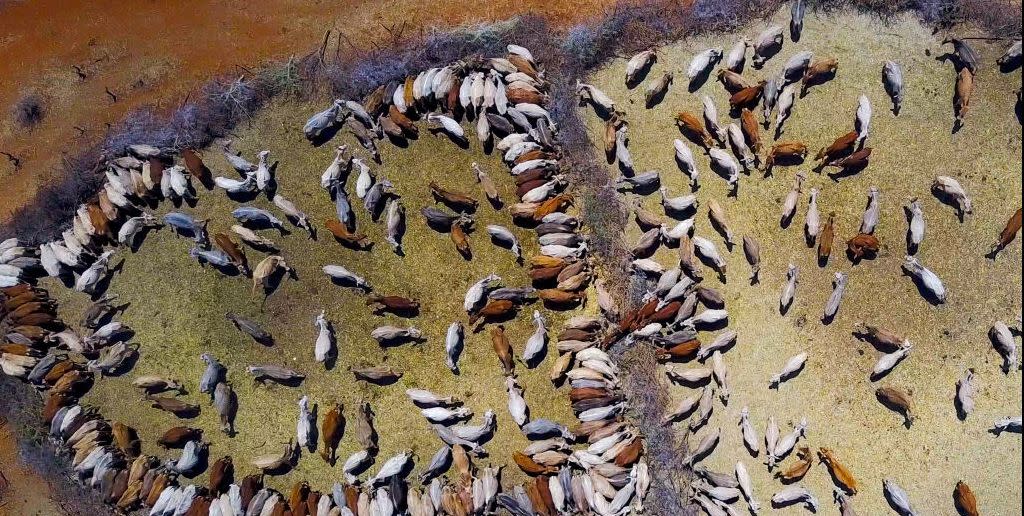The Global Food Supply is Delicate. Climate Change Is Making Things Worse.

By itself, humanity is pushing the bounds of how much food can consumed.
Climate change will significantly alter every aspect of food, from apples to steak.
If humans can halt deforestation and alter food patterns, things could be way better, says the new UN report.
A new report on climate change and land use from the United Nations shows over-exploitation of land resources at a rate "unprecedented in human history." If there are no changes in humanity's attitudes toward land resources or climate change, the study says, there will be a dire threat to humanity's global food supply system.
The societal and environmental problems facing the world's food supply are vast and multi-faceted, according to the report's first chapter. They include the "conversion of natural ecosystems into managed land, rapid urbanization, pollution from the intensification of land management and equitable access to land resources," as well as "technological development, population growth and increasing per capita demand for multiple ecosystem services."
As a 2018 study showed, 100 years ago, humans used just 15 percent of the world's surface to grow crops and raise livestock. Excluding the frozen wastes of Antarctica, that number is now 77 percent.
Of course, the transformation has significantly increased output. Since 1961, the report notes in its fifth chapter, "food supply per capita has increased more than 430 [percent], accompanied by greater use of nitrogen fertilizers (increase of about 800 [percent]) and water resources for irrigation (increase of more than 100 [percent])."
Despite the progress in output, however, climate change has already begun to weaken what's known as "food security," or the availability of food and one's access to it. The report, complied by over 100 scientists from 52 countries, points to prior studies that have analyzed both industrial and individual farming and found declines in crop production "related to rising temperatures and changes in precipitation."
The changing climate will also lead to an increase in crops facing pests and disease, hitting the United States, China, and France particularly hard.
All of that will amount to food becoming more expensive, tougher to procure, and less healthy. Cereal, for example, could see its prices rise as much as 29 percent by the year 2050. Increased natural disasters could affect supply chains on a a national level, like the floods that paralyzed Thailand in 2011 and 2012. Rice could become less nutritious, meat quality would get worse, and egg shells would become even more fragile.
“The potential risk of multi-breadbasket failure is increasing,” Cynthia Rosenzweig, a senior research scientist at the NASA Goddard Institute for Space Studies and one of the report's lead authors, told the New York Times. “All of these things are happening at the same time.”
It's a bleak, wide-ranging picture. The team behind the report says that humanity has to change patterns on an equally wide-ranging field.
“We don’t want to tell people what to eat,” Hans-Otto Pörtner, an ecologist who co-chairs the IPCC’s working group on impacts, adaptation, and vulnerability, told Nature. “But it would indeed be beneficial, for both climate and human health, if people in many rich countries consumed less meat, and if politics would create appropriate incentives to that effect.”
Change in diet could make positive change, the report says, as well as halt recent trends like deforestation.
“Unfortunately, some countries don’t seem to understand the dire need of stopping deforestation in the tropics,” says Pörtner, hinting at the recent decision by Brazilian President Jair Bolsanaro to ramp up deforestation of the Amazon. “We cannot force any government to interfere. But we hope that our report will sufficiently influence public opinion to that effect.”
Increased trees and less meat would mean more land open to reforestation, the report says. And while those large-scale changes wouldn't be enough to single-handedly halt climate change—there are still energy and transportation related CO2 emission to account for—they would certainly mark a significant victory in the battle.
You Might Also Like

